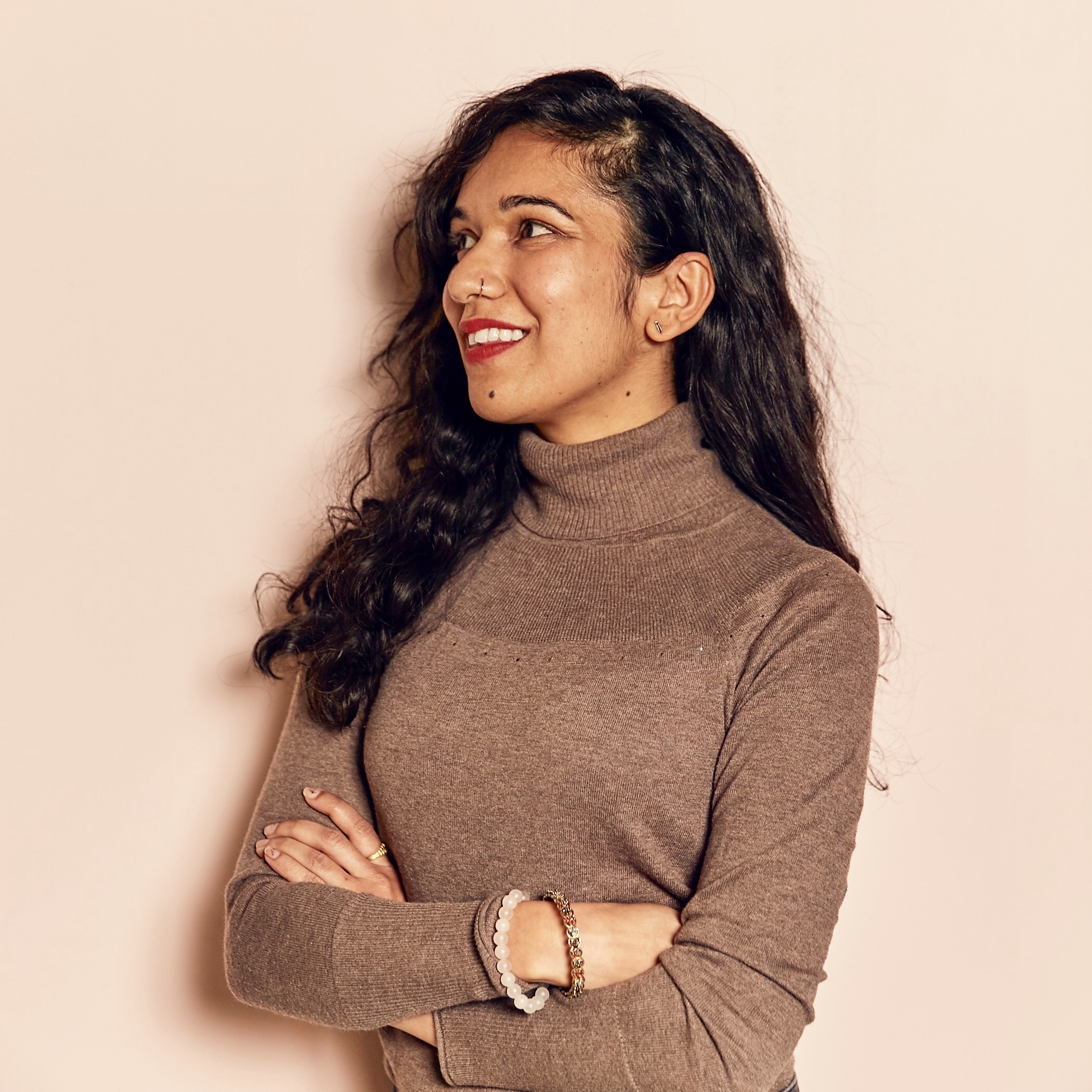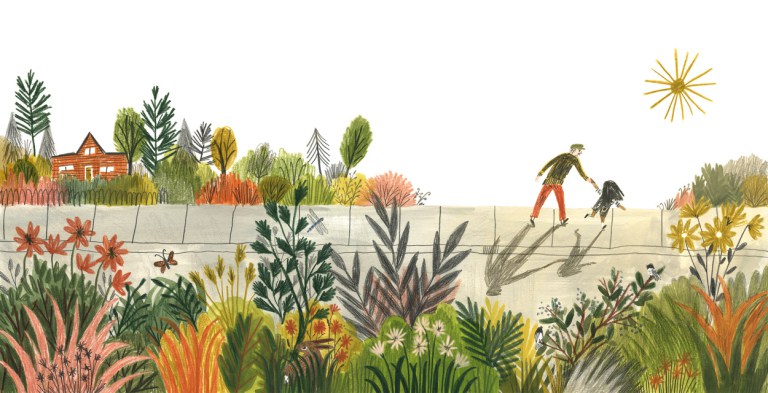A few months ago, I returned to one of my greatest joys – babysitting – to supplement my income as I explored potential career paths and opportunities. Fortunately, the parents of the delightful seven year old girl I currently care for are wonderful friends. I’ve known Khushi* since her infant years. My daily schedule involves picking her up from school, taking her to piano classes and caring for her two month old brother, Arhant*. It sounds like quite a lot but I love the flexible hours and mostly, I love the opportunity to spend time with young souls.
Khushi is an exceptional kid with an exceptional imagination; our days are filled with stories about cat siblings on adventures and the growing love and tension between the sisters (I feel particularly connected to the youngest one, who is both sweet and misunderstood). Between chess competitions and piano recitals, she finds time to play and work on her creative projects. When I watch her type away her stories on her mom’s laptop, I am reminded of a quote from Julia Cameron’s “The Artist’s Way.”
In filling the well, think magic. Think delight. Think fun. Do not think duty. Do not do what you should do—spiritual sit-ups like reading a dull but recommended critical text. Do what intrigues you, explore what interests you; think mystery, not mastery.
We know that it’s easier for children to approach life with a sense of curiosity and wonder; they appreciate play more than production. To Khushi, her creative pursuits are not attached to any particular outcome; she creates because it’s fun to express herself. This is her spiritual experience.
Then, there’s Arhant. It fascinates me how simple babies can be. When they’re hungry, they cry. When they want to be held, they squirm. When they giggle, they want us to know they’re delighted. But as adults, we sometimes struggle to connect with our own feelings and needs, burying them because they’re not important enough to be heard or too uncomfortable to be present with. We’ve developed enough survival mechanisms to deal with our fears, sadness, pain and loneliness, unaware that if we don’t release them – or at least, confront them – then we carry our projections and fears with us. We are asleep for most of our lives.
I’ve spent a great deal of time exploring my own past in an effort to understand what I loved doing as a child, and what was it about those activities that brought me joy. Finally, how can I translate those experiences into the kind of work I’d like to be doing? But that journey to the past unexpectedly led me to a deeper understanding of myself.
The process started off with questions. Why is it difficult for me to make decisions? Why do I need space and freedom to do my best work? Why does the idea of going back to a full time job terrify me? Why does freelance work terrify me more? What does financial stability mean to me? What stories am I telling myself as a single, first generation Bangladeshi American immigrant, CIS woman of color from NYC? What needs to happen for me to feel supported? Much of how we see the world and ourselves are rooted in our childhood experiences. We learn the meaning of trust, love, comfort and security from our families, specifically our caregivers.
We become free by transforming ourselves from unaware victims of the past into responsible individuals in the present, who are aware of our past and are thus able to live with it.
– Alice Miller, “The Drama of the Gifted Child: The Search for the True Self“
What happens when we allow our pasts to determine our present actions, when we live in our repressed childhood situations, ignoring the fact that it no longer exists? We continue to live in fear and avoid situations that may have been perceived as threatening in the past, but no longer are. Through my own journey, I became aware of the projections, habits and beliefs that have stayed with me for years. I was living on autopilot until I realized that these old patterns were no longer serving me. The adult me. “Parent yourself” were two words that stuck with me over the past few years as I committed to a path towards deep self awareness. My practices – spirituality, meditation, contemplation, creative work, reiki, writing, therapy and communities rooted in healing historical trauma and social justice – saved me by providing texture, color and shape to the stories I’ve been telling myself for the past 34 years. By naming, breathing and owning what I was feeling, I developed deeper compassion for myself….for my younger self. Parenting myself meant using the tools in my spiritual arsenal to guide me through difficult situations.
Believe it or not, the workplace offers many opportunities to heal from childhood wounds. Whether it’s a strongly worded email from a colleague or a toxic situation, the workplace can sometimes trigger our fears and insecurities. Critiques about my work are a trigger for me. As a first generation immigrant, I was raised to perform my very best in classes so if I didn’t meet my own unrealistically high standards, I would get anxious and upset with myself. My perfectionism is a survival mechanism that protects me from feeling pain; it also prevents me from trusting my work. When I wasn’t aware of my triggers, I would react strongly to the criticism shared with me. Or I wouldn’t listen. This is our ego at work, protecting us from truly listening to ourselves at a deeper, more conscious level. Through practice, I learned how how to sit in silence and watch the thoughts and sensations that arose, reminding myself of the Buddhist teachings on non-attachment. Our thoughts come and go as easily as our breathing comes and goes. Of course, these methods took time and breath meditation may not work for every situation. A close friend once asked me a few questions to help me create a safe space for myself at the workplace after a difficult situation.
Where am I?
What is it that I really need?
Now, how can I offer that to myself?
His presence relaxed me, allowing me to shift from a place of fear to a place of possibility. Talking to a peer, a friend or a loved one can be healing and is one of the most effective ways to parent yourself. Empower Work also offers confidential support for people facing tough, non-legal work situations via text or web chat. When it comes to working with difficult people, remember that they are also acting out their own childhood fears and insecurities, even the most spiritually evolved ones.
Ideally, workplaces should create spaces for deeper and more meaningful dialogue. The conversation should shift from “how to be more productive” to “how can we form deeper connections and foster each other’s growth?” As a transformational coach, I believe each person in your company, from the founder to the front desk receptionist, through their humanity, fundamentally impacts how your organization functions and manifests its vision. Distinguishing business operations from ever-present human dynamics enables clear, effective, and rapid change to processes and procedures. This results in a healthier, more vital company and a much better bottom line because companies that place value in human dynamics produce long-lasting and high-quality results. Knowing that we all have limiting beliefs, becoming aware of the wisdom in our bodies, identifying our emotions, and understanding underlying needs – this should be the future of the workplace.
To do our work, to come into deep knowing of who we are — that’s the stuff that bringing down systems of oppression is made of.
– Rev. angel Kyodo williams
If we want to transform the world, transform our communities, transform each other, we have to do the inner work. It’s imperative. And it starts with knowing who we are. What are the stories we carry with us? Going back to Khushi, Arhant, childhood dreams and my quest to finding work that’s truly meaningful, I ultimately realized that there is no wrong path. By trusting my process, with a childlike curiosity, I noticed my fears dissipating. I was okay with experimenting and making mistakes along the way. And I had help: I’d visualize the beautiful, strange and brave kid who lives within me, the one who loved show and tell and giving dynamic science project presentations. That kid needed me as much as I needed her.
*Names have been changed to protect the family’s privacy


